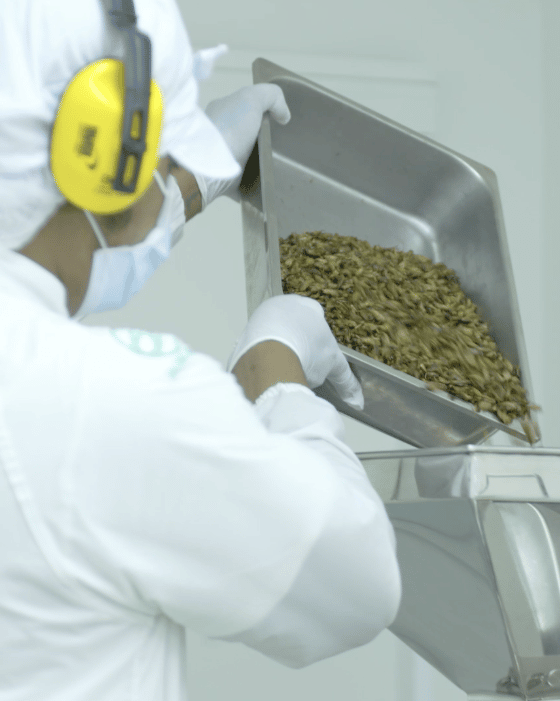
One of the causes of the challenges the world is experiencing
such as climate change, loss of biodiversity, population growth, poverty, and hunger, is our current food system.
Cricket powder, due to its ability to be produced more efficiently than cattle and its lower greenhouse gas emissions and higher nutritional value, is gaining attention as a potential sustainable protein source that could help mitigate these issues and contribute to saving the planet.
Elevate your vegan diet with Cricket Powder and make a positive impact on the environment
While an increasing number of individuals are adopting a vegan diet, it faces criticism from some quarters.
One common objection is the lack of sufficient protein in a plant-based diet, while others argue that obtaining complete proteins, including all 9 essential amino acids, and obtaining adequate B12 can be a challenge for vegans that requires careful planning.
However,
incorporating cricket powder into one’s diet can address these challenges faced by vegans. Cricket powder is a rich source of protein and provides all 9 essential amino acids, making it an ideal supplement for those following a plant-based diet. It is also a good source of B12, a nutrient that is often lacking in a vegan diet.
By incorporating cricket powder, vegans can ensure they are getting complete and balanced nutrition, making it easier for them to follow a healthy and sustainable plant-based diet. while also reducing the CO2 footprint level.
Crickets offer a more sustainable and healthy alternative to meat
A solution for a greener future requiring significantly less feed, energy, and land to produce the same amount of protein and mitigating climate change impacts.
Another reason why crickets are healthier than meat is that they are low in saturated fat and calories, making them a great choice for those who are trying to maintain a healthy weight. In contrast, many types of meat, especially processed meat products, are high in saturated fat and calories, which can contribute to weight gain and other health issues.

One kilogram of crickets only requires 7 liters of water
compared to one kilogram of chicken, which requires 3.5 cubic meters, one kilogram of beef, which requires 6.8 cubic meters, and a single egg, which requires 100 liters of water.
A natural area equivalent to seven football fields is being destroyed every minute to make room for cattle and their food. The destruction of trees, which play a crucial role in absorbing CO2 and mitigating the effects of climate change, exacerbates global warming. Deforestation also has detrimental effects on the water cycle, soil quality, and biodiversity. According to experts, if 5-8% more of the rainforest is lost, the climate will reach a tipping point. Currently, more than 900,000 km2 of the rainforest has been transformed into pastures for animals.
Crickets can increase the sustainability of plant-based products by being an ingredient that is high in protein and nutritious, as they are rich in essential amino acids, vitamins and minerals, thus adding to the overall nutritional profile of the plant-based product.
Additionally, since crickets are a more efficient protein source than traditional animal-based protein sources, using cricket powder as a food ingredient can lead to a more sustainable food system by reducing the strain on land, water and feed resources. This, in turn, can lower greenhouse gas emissions, promote biodiversity and reduce environmental pollution, making it a more environmentally friendly and sustainable alternative.

By providing superior health advantages than both meat and plant protein, cricket farming is unquestionably more sustainable and environmentally friendly than animal agriculture.
It is also a natural food source since it makes up a large part of the basis of the wild life food chain. Currently around 20% of the world’s population consume insects, and it’s getting more common also in EU and America, while Asia is the biggest market for Global Bug Asia.

